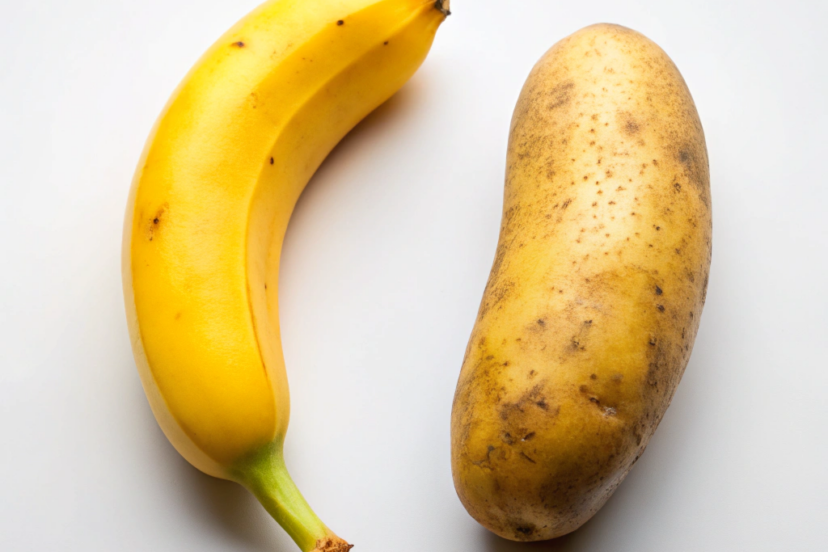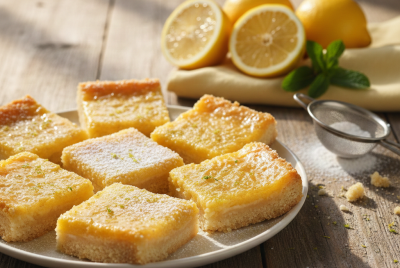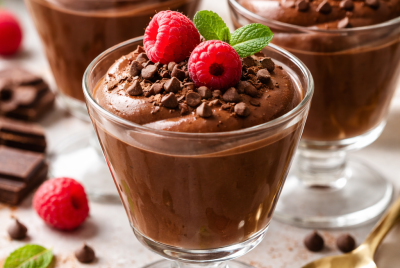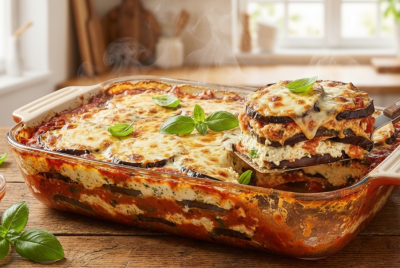Potassium-Rich Foods: Banana vs Potato Showdown
Potassium, an essential mineral, plays a key role in several vital functions, from keeping your muscles working smoothly to maintaining proper heart and kidney function. But how much do you really know about the potassium-rich foods that fuel your body? In this showdown, we’ll explore two popular potassium-packed contenders: the humble banana and the versatile potato. Which one truly packs more of this essential nutrient? Let’s find out in this banana vs potato battle of potassium-rich foods!
What Is Potassium and Why Does It Matter?
Before we dive into the banana vs potato comparison, let’s first understand why potassium is so important.
Potassium is a mineral and electrolyte that helps regulate fluid balance, muscle contractions, and nerve signals. It also plays a crucial role in managing high blood pressure and reducing the risk of stroke.
According to the Food and Drug Administration (FDA), adults should aim for 4,700 mg of potassium daily. However, many people fall short of this daily potassium requirement.
This deficiency can lead to various health problems, including muscle cramps, kidney stones, and even high blood pressure.
Banana: The Famous Potassium Hero
When you think of potassium-rich foods, bananas are probably the first thing that comes to mind.
A medium banana (about 118 grams) provides roughly 422 mg of potassium, which is about 9% of your daily value (DV).
Bananas are not only a great source of potassium but also packed with other beneficial nutrients like dietary fiber, vitamin C, and natural sugars.
Nutritional Contents of Banana
Here’s a quick recap of significant nutrients you’ll find in a medium banana:
- Potassium: 422 mg
- Dietary Fiber: 3.1 grams
- Vitamin C: 10.3 mg
- Vitamin B6: 0.4 mg
- Magnesium: 32 mg
Bananas are also known for their role in supporting heart health and reducing the risk of stroke. The high potassium content helps balance sodium levels in the body, making it easier to maintain lower blood pressure and improve cardiovascular health.
Potato: The Underrated Potassium Powerhouse
On the other side of the ring, we have the potato, often overlooked when talking about potassium-rich foods.
A medium potato (about 213 grams) packs around 941 mg of potassium, which is about 20% of your daily value. That’s more than double the potassium you get from a banana! It’s important to note that this includes both white potatoes and red potatoes, as well as other varieties like sweet potatoes.
Nutritional Contents of a Medium Potato
Let’s take a look at what you get from a medium potato:
- Potassium: 941 mg
- Dietary Fiber: 4 grams
- Vitamin C: 19 mg
- Vitamin B6: 0.6 mg
- Magnesium: 49 mg
Potatoes are not only a good source of potassium, but they also contain resistant starch, a type of fiber that can promote good bacteria in the gut and improve digestive health. They also have other nutrients like vitamin B, vitamin C, and grams of protein, making them a well-rounded, nutritious food option.
Banana vs Potato: The Nutritional Showdown
Now that we’ve taken a closer look at both contenders, let’s compare them side by side.
In terms of potassium content, potatoes are the clear winner, providing more than twice the amount of potassium you’d get from a banana.
However, bananas have their own unique advantages, like being rich in vitamin C and having less sugar than other fruits.
Potassium in Banana vs Potato: What You Should Know
- Bananas: 422 mg of potassium per medium banana
- Potatoes: 941 mg of potassium per medium potato
That means if you’re looking to boost your potassium intake quickly, a potato might be your go-to option.
However, the nutritional contents of bananas and potatoes complement each other, making both foods valuable in your diet.
The Health Benefits of Potassium
Whether you choose bananas or potatoes, the health benefits of potassium are undeniable.
Potassium helps with muscle contractions, maintains fluid balance, and keeps your nerves firing correctly.
It also works to counterbalance sodium’s effect on blood pressure, making it crucial for overall heart health.
In addition, potassium is vital for preventing kidney stones, supporting muscle function, and even promoting proper kidney function.
Potassium’s Role in Muscle and Nerve Function
Potassium is essential for muscle function and nervous system health. It helps regulate muscle contractions and prevents muscle cramps.
This is why athletes and active individuals are often encouraged to consume potassium-rich foods, especially after intense exercise.
Bananas, with their natural sugars and potassium content, are often recommended as a quick snack to replenish lost electrolytes.
The Role of Potassium in Heart Health
Potassium plays a major role in maintaining a healthy heart. It helps regulate blood pressure by balancing sodium levels in the body.
A potassium-rich diet can lower the risk of hypertension, heart disease, and stroke.
Both bananas and potatoes are good choices for supporting heart health, with their high potassium and low sodium content.
Potassium and Kidney Health
Maintaining the right potassium levels is also crucial for kidney function.
Potassium helps prevent the formation of kidney stones by reducing calcium loss in urine.
However, individuals with kidney disease need to monitor their potassium intake closely, as their kidneys may struggle to remove excess potassium from the blood. High potassium levels, known as hyperkalemia, can be dangerous for these individuals.
Common Potassium Deficiency Symptoms
Not getting enough potassium can lead to a range of issues. Here are some of the most common signs of potassium deficiency:
- Muscle weakness and cramps
- Fatigue
- Irregular heartbeats
- High blood pressure
- Kidney stones
To avoid these symptoms, it’s important to consume potassium-rich foods regularly.
Hyperkalemia (High Potassium Levels)
Hyperkalemia is a medical condition characterized by elevated levels of potassium in the blood, typically above 5.0 millimoles per liter (mmol/L).
Potassium is crucial for muscle function, including the heart, but when levels become too high, it can disrupt normal heart rhythms and lead to life-threatening complications.
Common symptoms include muscle weakness, fatigue, abnormal heart rhythms (arrhythmias), and, in severe cases, cardiac arrest.
Hyperkalemia is often caused by kidney dysfunction, as the kidneys play a vital role in filtering excess potassium from the body. Other causes can include medications, dehydration, or excessive intake of potassium-rich foods.
Treatment typically involves dietary adjustments, medications, or dialysis, depending on the severity of the condition. Regular monitoring of potassium levels is essential, particularly for those with kidney disease or on certain medications that affect potassium balance.
Top 20 Potassium-Rich Foods Besides Bananas and Potatoes
While bananas and potatoes are some of the most well-known sources of potassium, below is a list of 20 other good sources of potassium:
- Tomato paste: 2,657 mg per cup
- Beet greens: 1,309 mg per cup (cooked)
- White beans: 1,189 mg per cup
- Swiss chard: 961 mg per cup (cooked)
- Acorn squash: 896 mg per cup (cooked)
- Spinach: 839 mg per cup (cooked)
- Black beans: 739 mg per cup
- Lentils: 731 mg per cup (cooked)
- Kidney beans: 713 mg per cup (cooked)
- Avocado: 708 mg per avocado (medium)
- Prune juice: 707 mg per cup
- Edamame (green soybeans): 676 mg per cup (cooked)
- Coconut water: 600 mg per cup
- Butternut squash: 582 mg per cup (cooked)
- Mushrooms (portabella): 555 mg per cup (grilled)
- Sweet potatoes: 541 mg per medium sweet potato (baked)
- Salmon: 534 mg per 3-ounce serving (cooked)
- Pomegranate juice: 533 mg per cup
- Pumpkin (canned): 505 mg per cup
- Orange juice: 496 mg per cup
These foods offer a more concrete comparison with bananas and potatoes when looking for ways to increase your potassium intake to meet your daily potassium requirement or to reduce it if you have hyperkalemia.
Bananas vs Potatoes: What to Choose?
When you’re at the grocery store trying to decide between bananas and potatoes, think about your nutritional goals. If you need a quick snack with fewer calories and more natural sugars, go for a banana.
If you’re preparing a hearty meal and want to boost your potassium intake, potatoes are an excellent choice. Just avoid loading them with potato chips, sour cream, or french fries if you’re trying to keep things healthy!
Serving Sizes: How Much Is Enough?
The right serving size of potassium-rich foods will depend on your specific dietary needs.
A medium banana offers about 9% of your daily value, while a medium potato gives you 20%.
If you aim for 4,700 mg of potassium per day, including a mix of both bananas and potatoes, plus other foods, can help you meet that goal.
Conclusion: Who Wins the Potassium Showdown?
So, who takes the crown in the banana vs potato potassium showdown? In terms of raw potassium content, potatoes are the clear winner. But bananas shouldn’t be discounted—they’re still a good source of potassium and come with added benefits like vitamin C and easy portability. At the end of the day, both foods have their place in a healthy diet. Whether you’re reaching for a banana as a snack or adding potatoes to a meal, you’re doing your body a favor by fueling it with one of nature’s best sources of potassium.
________________________________________
FAQs About Potassium-Rich Foods
1. What food has the highest potassium?
Tomato paste holds the crown, with over 2,000 mg of potassium per cup.
2. Is 1 banana a day enough potassium?
One banana provides about 9% of your daily potassium requirement, so you’d need more than one to meet the daily value.
3. What fruit has the most potassium?
Aside from bananas, avocados are another potassium-rich fruit, with over 700 mg per fruit.
4. What food has more potassium than bananas?
Potatoes, white beans, and tomato paste all contain more potassium than bananas.
5. How can I get 100% potassium daily?
Eating a mix of potassium-rich foods like potatoes, beans, and bananas can help you reach the recommended 4,700 mg daily.
6. What raises potassium quickly?
Foods like potatoes, coconut water, and prune juice can boost your potassium levels fast.
7. How to flush excess potassium?
For individuals with high potassium levels, treatments may include medications, adjusting the diet, or dialysis, in the case of kidney disease.
8. What are the signs of high potassium?
According to Cleveland Clinic, the symptoms for mild hyperkalemia (high potassium level) are:
- Abdominal pain.
- Diarrhea.
- Nausea and vomiting.
Very high potassium levels can be dangerous, affect your heart and cause sudden, life-threatening problems:
- Chest pain.
- Heart palpitations.
- Arrhythmia (irregular, fast or fluttering heartbeat).
- Muscle weakness or numbness in your limbs.
9. Does lemon water reduce potassium?
Lemon water does not directly reduce potassium but can be part of a balanced diet that supports kidney health.
10. What foods bring down potassium?
Low-potassium foods like apples, berries, and white bread can help lower potassium levels in the body.
11. What can I drink to lower my potassium?
Drinking water, particularly in large amounts, can help flush out excess potassium. However, always consult a healthcare professional if you’re managing high potassium levels.




